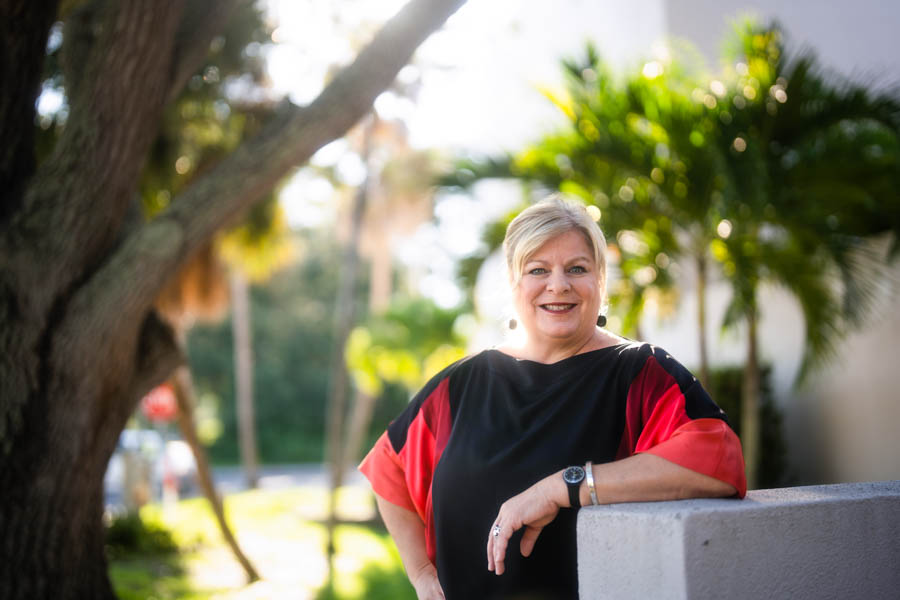Ashley Brown, the CEO and president of the Women’s Resource Center (WRC), has ushered in bold changes to the organization—continuing to bring more valuable services to Sarasota and Manatee counties. From a merger of the WRCs in both counties in 2017 to significant growth in advocacy resources, the organization has thrived under Brown’s watch. Born in Georgia, and raised in West Virginia and South Carolina, Brown holds a bachelor’s degree in political science from the College of Charleston. She began her career in manufacturing, working for Westinghouse Electric in the large substation transformer division. In 1999, when Ohio Transformer in Palmetto recruited her to be their planning manager, she moved to Florida. She was the first female production manager in a transformer facility in the United States.Brown started volunteering with the WRC in 2000 as a computer tutor, became the finance/development manager two years later, and ascended to the role of executive director in 2003. Since 1979, the not-for-profit WRC has provided women with life skills training, career planning and educational scholarships—a mission in which Brown deeply believes.
What drove the partnership between the WRCs in Sarasota and Manatee counties? Ashley Brown: The merger started with a transition of leadership in Sarasota. We had always operated independently but with almost identical missions. We supported what they did but didn’t find ways to truly collaborate. When their long-term director left the Center, it was a good time to talk about merging. The Patterson Foundation provided consultants, and legal and financial expertise, to take us through the merger in 2017. Interestingly, I think the pandemic was a positive for us. Even though we were three years into the merger when the pandemic hit, we were still operating as the Venice, Sarasota and Manatee offices. When we switched to all-virtual programming, we switched to one office. Taking a regional approach allowed us to look at collaborations and partnerships more broadly. We are extremely collaborative in what we do.
What are some of the top issues of importance to women in our region? Economic security for women is one—the ability to earn a living wage. Only 24 percent of female heads of households earn above a sustainable wage in our region. The number of women living on the margin is significant. At the WRC, we work with women in identifying career paths and supporting them in obtaining those careers—through scholarships, accessible mental health counseling, career counseling, etc. We’re equipping them with the skills and tools to be resilient, and to pick themselves up and move on when something inevitably happens and takes them off-track. We do public policy advocacy on systems or policies that are keeping women from earning a living wage. Asset building is another top issue—saving for retirement or home ownership. Affordable housing is another issue, as well as access to mental health. One of the best things I think we do is that we have affordable mental health counseling for anywhere from $5 to $40.
How do you personally define success? It’s going to sound cheesy but I swear it’s true: It’s having that strong sense of self and mental health. It’s also about financial security and the ability to support yourself (so your choices and decisions are based on what’s best for you). That’s why I love what I do so much.
What is one thing you can share about yourself that would surprise people? The fact that I started my career in manufacturing is, I think, surprising to people. I was the first female production manager in a transformer facility in the U.S. Another thing people may not know about me is that I am happiest at home. I am a homebody. Give me a weekend with no agenda or schedule and I’m a happy camper.









